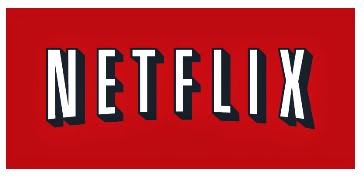You see them in playgrounds and soft-play centres, stalking their toddlers until they can’t do anything for themselves, picking them up constantly until they become overdependent.
What’s the point of learning how to pick yourself up when your helicopter parent is always a step behind, like a coiled spring, ready to pounce and pull you back to your feet, oblivious to whether you actually wanted to stay on the floor.
Bringing up kids in this overprotective style of parenting is something you come across increasingly often these days. Typically, a mother or father discourages a child’s independence by micro-managing a child’s innate need to explore, even when the environment is safe and the child is happy to move about. A helicopter parent doesn’t even consider what the child wants; they think that they’re being a responsible parent by matching them pace-for-pace and swooping down at any sign of hiccup.
I watched a helicopter daddy do exactly this to his toddler the other day in a soft-play indoor centre (probably the safest place you’ll ever take your child), ironically just as I came across an article in a newspaper about how bad it was. I should have raced over to him and thrust the paper in his face and forced him to read it, for the sake of his little girl who didn’t get any breathing space from this “on-duty dad” shuffling behind her, not even interacting with her. But seeing as I was being the opposite of helicoptering: an absentee parent, who was taking a rare opportunity to put up my feet and read a newspaper whilst the three kids played in a confined, safe space, I obviously couldn’t be bothered.
The article quoted Dr Peter Gray, a renowned psychologist who is on a mission to persuade parents against hovering in this way. He says we will make our children narcissistic (having an inflated sense of self) if we over-parent like this:
“Free play is how children practise taking charge of their own lives. It is how they learn to make their own decisions, solve their own problems, negotiate with others as equals, see from others’ points of view, make friends, and manage risks. It is also how they learn to control fear and anger.
“But if a parent is hovering nearby and steps in whenever someone gets upset or angry, they deprive children of the opportunity to learn to control these emotions themselves. When children are continuously managed and directed by adults, they don’t develop an internal locus of control.”
Mollycoddled kids ‘grow up as narcissists: Mail Online
He suggests we give them more freedom and instead of mollycoddling them, make ourselves scarce so they become more capable, and when they’re older, allow more outdoor, unsupervised play.
It’s certainly food for thought. I recently started letting my four-year-old girl play outside in our courtyard estate with her friends (it helps my mama angst to know that her friend’s nine-year-old sister is also playing with them/looking out for them). My now six-year-old boy has been playing outside unsupervised with his friend for a few years too. They don’t go out of our small estate, tending to roll around on the grass when it’s dry, and be in and out of each other’s houses in winter. Luckily we live in a very safe community and a quiet part of the country, so it’s easier for me to go along with the recommendations of letting our children play outdoors more without adult supervision. Some parents don’t have that option.

When my firstborn was barely a few months old, I read an eye-opening book that laid the foundations for my entire approach to parenting. It was Do Not Dsturb by Deborah Jackson (1993) and it presented me with an argument for leaving them to fall over. Taking the opposite approach to the dad in the soft-play centre with the stumbling toddler, the book espouses sitting back and keeping an eye from a safe distance when your child totters along the edge of the pond – just make sure you pack a change of clothes.
It presents research that shows yelling “Be careful!” at them is counter-productive, because it makes them question their own sense of how they judged something. By adding our anxieties into the mix, our children begin to doubt themselves and think that if mum thinks I’m going to fall, then I will.
Only when a child’s judgement is called into question does doubt start to creep in. When a mother overprotects a child, their natural steering begins to go off course. Deborah Jackson argues that children are more capable than many of us realise. Children need adult support, but they do not need interference, which can damage their growth, sense of balance and physical confidence.
Imagine the damage we are doing to our children when we say, “Don’t do that, you’ll fall”, or refuse to allow a toddler to walk without letting them to learn to pick themselves up. Do we really want to be doing everything for them for the rest of their lives?
I’ve always been a big fan of the philosophy of letting them learn from their own mistakes and letting them find their own sense of balance and confidence. I'm more of a 'Satellite Parent' because I keep an eye on them from a safe distance, trust that they're not going to come to harm so I leave them to explore and play, learning from any tumbles they might have.
We push our children, and we push ourselves, but maybe it’s time we just let them roam free (within age-appropriate reason of course). Maybe it’s time to allow their lovely little bodies and vivid imaginations to soar without continuing the legacy burden of our ancestors with interfering warnings becoming programmed into their heads.
The helicopter could come crashing down to earth with a rough landing if we don’t.
*****
This article originally appeared on Parent.ie
Post a Comment












